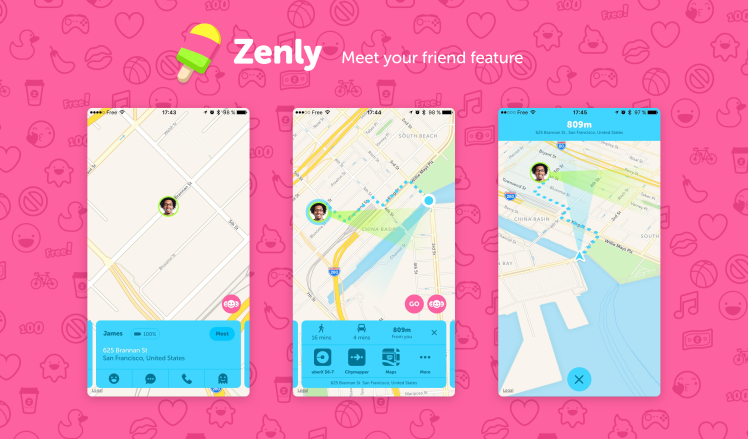By the time the cofounders of Paris-based Zenly got together, the world was not exactly begging for another check-in or location-sharing app.
No matter. The French entrepreneurs decided to give it one anyway. That unlikely bet seems to have paid off with reports that Snap has acquired the company for more than $250 million, according to TechCrunch.
The deal came to light after Snap earlier this week launched Snap Map, which seemed like a clone of Zenly, at best. Instead, it appears Snap has simply bought the company.
Representatives of Snap and Zenly did not respond to a request for comment. But I spoke to Zenly cofounder Alexis Bonillo last fall after the equally surprising news that Benchmark Capital had led a $22 million investment round in the app.
June 5th: The AI Audit in NYC
Join us next week in NYC to engage with top executive leaders, delving into strategies for auditing AI models to ensure fairness, optimal performance, and ethical compliance across diverse organizations. Secure your attendance for this exclusive invite-only event.
We talked about the history of the company and why they thought they could figure out a space where promise always seemed to outstrip reality.
“We were a huge fan of all the check-in apps that combined social and location sharing,” he said. “But the public was not ready to share its location. So we tried to evaluate why and how we can fix that.”
Bonillo got together with cofounder Antoine Martin to create the predecessor of what would become Zenly in 2011 after they finished business school in Paris. The pair spent a lot of time talking to users about location sharing, privacy, and mobile. They launched an earlier version of the app in 2014, but it didn’t get much traction, and so they continued to tinker, talk to users, and refine the concept.
The problem with checking in is that it creates too much friction, he said. No matter how seamless the experience, the user has to make an effort and take several steps. And the rewards and motivation have never been very clear, he added.
So continuous location-sharing would seem to be a better solution. But that creates another major headache: It kills battery life.
“All the geo-location products were killing the user experience,” he said.
The solution was to build the app in such a way that it only shared your location when a friend requested to know where you are. Battery usage fell dramatically, and the information was fun and useful among the circle of friends you had created. That, along with fun avatars and graphics, suddenly turned Zenly into an addictive hit, at least in Europe.
Zenly raised $11.2 million in May 2016, and just six months later it announced the $22 million round. That round was led by Benchmark’s Peter Fenton, who joined the company’s board. With 2 million users and rocket-like growth, Zenly seemed ready to take on the world.
So much so that Bonillo, ironically, bragged in an interview on Europe 1 last year that when it came to teens and Zenly: “It’s their new Snapchat, their new social network.”
Over the last few months, the company had been focused particularly on the U.S. market. When we spoke, Bonillo was in the process of moving to San Francisco and expanding Zenly’s presence there.
“I really need to become much more American in my marketing,” he said. “We are French and are set up in Paris. But our vision is to have billions of users playing with this around the world. Our goal is to become a worldwide product, not a little product from Paris.”
Despite Snap’s own challenges in terms of user growth, the company raised plenty of money from its IPO to give Zenly all the marketing muscle it might want. Despite big skepticism along the way, Zenly is now going to get its chance to prove it belongs on the global stage.

